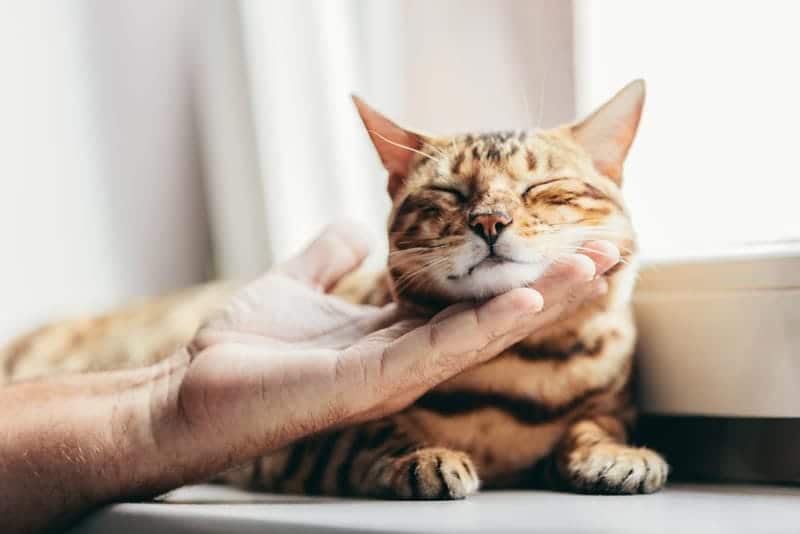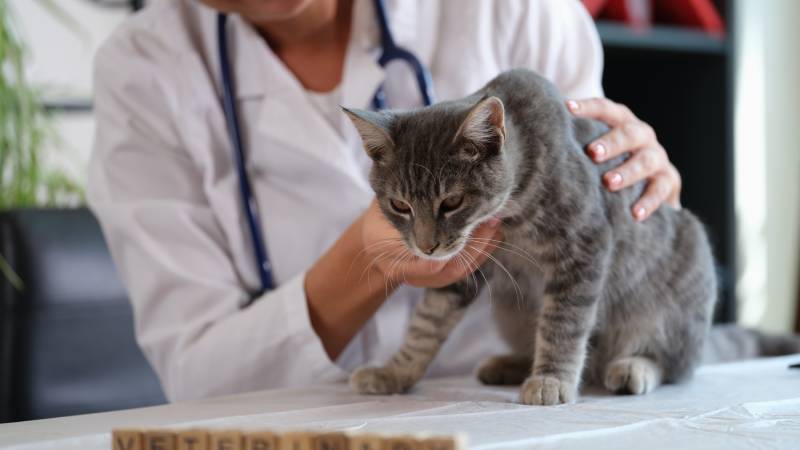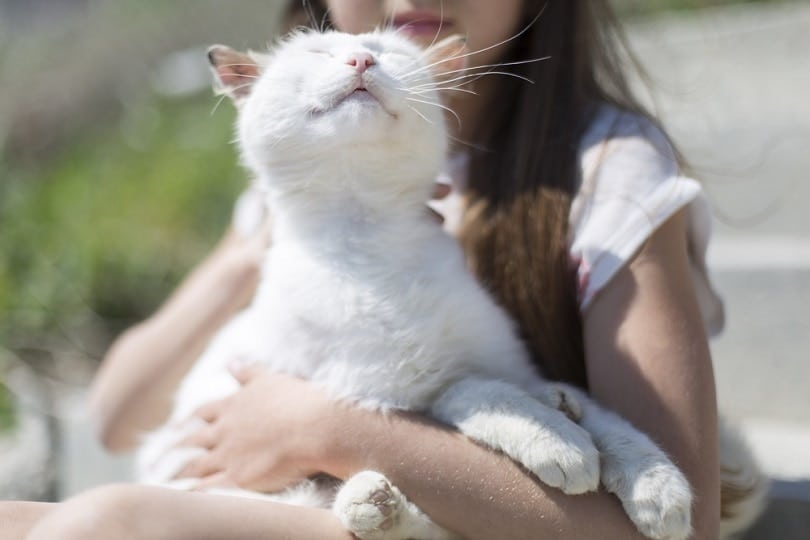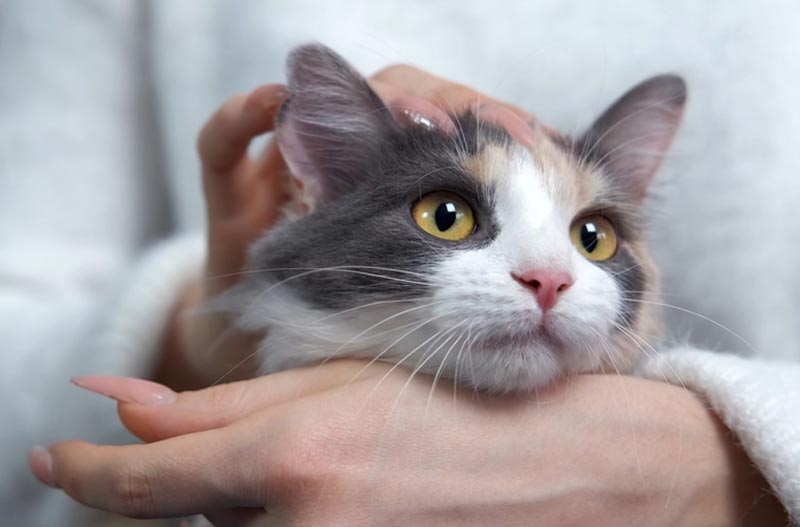In popular media, cats are depicted as quirky for their independent nature, hilarious dislike for water, and their ability to slide underneath even the narrowest door opening. Another thing that’s synonymous with our furry felines is their ability to purr. You may notice your cat purring at weird times and sometimes for extended periods, which can be a bit confusing. The reason behind purring can go from being happy to being stressed or just a therapeutic behavior for them. So why do cats purr exactly, and why might they do it all the time?
How Exactly Do Cats Purr?
Let’s first start by discussing how cats purr from a physiological standpoint. The sound that you hear is essentially the product of air passing over vibrating muscles that surrounds your cat’s airways. The ability to start and stop purring is controlled by your cat’s brain on a subconscious level.
Essentially, the purring is the sound of air passing over vibrating muscles. There is a similar mechanism that happens in some large wild cats that cannot roar, such as bobcats, ocelots, lynxes, cheetahs, and African wild cats. Conversely, cats that can roar, such as lions, jaguars, leopards, and tigers, don’t purr.
So that explains how they purr, now let’s discuss why they may do it.
The 5 Reasons Cats Purr All the Time
1. The Cat Is Content
When cats are relaxed and content (and happy overall), they’ll often purr. At some point, you’ve come across your cat lying down on their back with their belly exposed (which is often perceived by owners as an indicator of trust). This indicates that they are relaxed and feeling pretty good, which explains why you may often see this a few minutes after a meal or right in the morning when they wake up. These are signs that your cat is content and enjoying their best life.
Sometimes, cats might need some alone time in a quiet place if they’re stressed. They might even want to simply cuddle up with you in the bed or on the couch. In some cases, they may simply retreat to their own bed and hang out for a while, and you may hear purring as they do this.

2. They’re Communicating Maternally
Purring also has a maternal purpose. Newly born kittens start to purr as soon as they are a few days old. Some people argue that in the wild, purring is a quiet way for kittens and mothers to communicate with each other without being heard by predators—something essential for their survival.
However, it’s important to note that many animals have superior hearing that could pick up a purr from a den. Therefore, this theory isn’t without its flaws. It is more acceptable to assume that purring helps enhance the maternal-kitten bond. Mother cats also purr when they’re nursing their kittens.
3. The Cat Is in Pain
A cat that is stressed can also purr a lot. A cat’s purring frequencies can help expedite healing in some situations, and cats that are in pain often purr. It’s possible to tell if your cat has stress by looking at their other visual cues. Often, cats purr out of pain in instances of long-term pain, not short-term stressors.
Though cats may instinctively purr when in pain, it’s not possible for them to heal themselves completely this way. A cat that’s in pain requires veterinary care.

4. They Want Something
Cats don’t understand our language, so they have to learn other languages to talk to their owners. Did you know that your cat’s meow might sound different depending on the situation? Cats can manipulate their meow to solicit treats or cuddles, and if their purrs draw your attention in a positive context, they may sometimes begin purring when they want something from you.
Studies have shown that cats may be mimicking human babies in their meows, appealing to our nurturing instincts. They might be more insistent or less frequent in their purring – they will try everything to get what they need, such as food.
5. Purring May Be Therapeutic
Cat experts have seen cats cuddle up and purr when injured to speed up the healing process. The frequency at which your cat’s purr vibrates is between 25 and 145 Hz. The vibrations within cats’ bodies may provide pain relief and serve a protective, soothing, and comforting function.

Wrapping Things Up
Cat purring is not only a characteristic of domestic cats but also a feature found in other cat species, such as cheetahs and bobcats. Although purring is believed to be a sign of contentment and happiness for a long time, cats will often purr to self-soothe, communicate, and express their emotions to you and their feline family.
Featured Image Credit: Gadzick, Shutterstock











